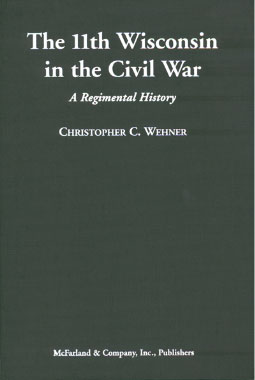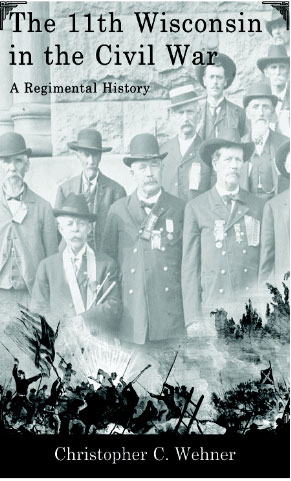This post might be perceived as political, but it is not. I take no side, I blame both Republicans and Democrats alike. I blame the legislative and executive branches. We must realize that Congress has a lower approval rating than George W. Bush for a reason.
Before I address the issues, I want to first stress that I find the topic of energy of vital interest to us today seeing that some think the world has reached its peak oil production. Others predict $12 per gallon prices in our future. In case you didn’t know it, our economy is not designed to handle gas prices as high as $5 PG let alone $7, $10, or $15. The results will be devastating for us.
Why is America so dependent on low cost sources of energy? I have had the pleasure to get to know a German student in my class this year and have thoroughly enjoyed speaking with him at length. In Europe, people take the train, they ride bikes, and they drive small cars. Why?
Is it because they are just plain smarter than us fat and lazy Americans? Are they more energy and environmentally astute? This student responded with a laugh. After telling me that Germany has surpassed the U.S. as the “fattest” nation (which I questioned), he then told me how they had no real options. Everything is close to home. Also, ancient hamlets and towns that today support modern dwellers were never designed to handle cars. If you have never been to Europe, the streets were clearly made for horses, not cars.
Additionally, just compare the size of Germany to the United States. Not only is it smaller, it is very compacted. It’s like driving through Pennsylvania. Every few minutes another town. Nothing out of reach. The U.S. is a sprawling country where people have to rely on cars, trucks, airplanes, and yes trains just to commute to their job, transport their goods for sale, and all the other things our way of life depends on.
The distance factor alone demands that we have cheap sources of energy. You would think Congress, our elected politicians, would know this and take action. So let us look at their actions of recent:
Just today they have paraded the evil oil executives before them so they could grand stand and put on a nice show (this way we all feel better filling up to $4 per gallon knowing that our elected officials are doing their jobs):
If that’s not enough for you, then sit down, because Congress has another plan. Yes, the “Great American Plan:” if you can’t beat ‘em, sue ‘em: House passes bill to sue OPEC over oil prices.
For the love of God! I’d take Bush over these bozos anytime; eh, that’s not saying much.
Finally, they do have a plan. It’s something called “Windfall Profits Tax” on the evil oil companies. Sounds American doesn’t it? Socialism, here we come!
Did you know Carter tried this in the 1970s and it was a disaster! No one applies history anymore.
Did you also know that though the evil oil companies made on paper “record” profits. They also paid “record” taxes. Take away the tax on oil companies, and gas prices come down.
You know, put aside your emotion about the oil executives making $2 million a year. (They are not the only ones who do by the way.) Two million here or there does not result in $4 per gallon gas!
I thought we lived in an open-market, capitalistic economy? These companies take their profits and spend billions of dollars on finding new sources of energy. Take away their ability to make a profit, and you take away their desire to find more oil and ultimately cheaper prices. And yes, they want to bring you a cheaper product!
So how did we get in this mess? Let’s look at that:
When was the last time we developed new areas for drilling? President Clinton wouldn’t allow it in Alaska in the 1990s and Congress has continually denied it. (Some movement lately on this.)
Our government taxes the crap out of oil companies, did you know this? With regulations and environmental controls on energy companies, the United States Congress has created this mess. Along with the presidents of both parties, though we are finally now starting to look to Alaska and other “new” areas to drill for oil. But unfortunately, our government is getting in the way and is hurting you, the little guy just as much as the evil oil companies!
What about nuclear energy? Did you know we could solve our dependency on foreign energy by using nuclear energy to not only supply electricity, but to produce coal-derived oil. The United States contains 25% of the world’s coal. There would be enough to completely stop bringing in foreign oil. Additionally, the U.S. contains the world’s largest belly of natural gas (Appalachian Mountains), yet we import a significant amount of natural gas!? We spend $300 billion a year (and rising) on foreign energy sources. Imagine that being put to other uses both social and environmental!
If we continue to hamstring energy companies and allow overtly aggressive and unnecessary environmental regulation to strangle our ability to produce the cheap energy we need, our economy will suffer.
For example, “because of congress there wouldn’t be any new leases for drilling in the Gulf of Mexico, meanwhile China and Venezuela and even Cuba pursued these leases and have just signed 100-year leases on the oil in the Gulf. Also, in congress, they have promised, as all three presidential candidates have also promised, to introduce and pass in the next term a cap and trade legislation bill that will increase the price of gasoline according to the EPA by an additional $1.50.” Thanks pals!
On top of that, because of the regulation congress has put in place, there has not been a single new oil refinery in over 30 years in the continental United States! Thanks again.
I know, the environment. We’re destroying the earth, we’re all gonna die.
Yes, I do not buy into the Al Goreism that so many seem to. I will simply offer a source. One that contains the signatures of over 31,000 scientists, including 9,000+ PHDs, and more experts and legit authorities on the environment than Al Gore or the United Nations has ever thought to consult.
You won’t see this petition on CNN, and you certainly won’t be able to ask Al Gore about it, as he refuses to debate the issue or allow such questions during his “lectures.”
I’m not suggesting that the debate is over, as Al Gore does, but I am strongly stating that there is clearly enough evidence that the earth is simply in the midst of a natural cycle. The above scientists have staked their reputations on it. They have used proven scientific data, not some hypothetical computer simulation such as Gore.
Global warming and the future of the earth is very debatable, clearly. But what is not, the fact that the days of $2.50 per gallon gas are gone; and does not have to be! The United States is falling behind, day-by-day, and our government has allowed it. If we see $5+ per gallon of gas nation wide, as I think we will unless something is done NOW, and it sustains itself over a period of years – perhaps even rising as some suggest to $10+, then we will know true disaster. Without cheap sources of energy our economy crashes and all of us suffer.
We can use oil and nuclear energy and do so in ways that will not harm the environment. (You’ll have to read above link to understand, but will you?) We can get off our dependency on foreign energy sources; we can become a stronger country and lead the way in developing better and more efficient cars, and better and more renewable energy sources. We cannot do this if we become bankrupt and crippled.
The End.


 , by Tony Horwitz, who you might recognize as the bestselling author of Blue Latitudes, Confederates in the Attic, and Baghdad Without a Map. He is also a Pulitzer Prize–winning journalist who has worked for The Wall Street Journal and The New Yorker.
, by Tony Horwitz, who you might recognize as the bestselling author of Blue Latitudes, Confederates in the Attic, and Baghdad Without a Map. He is also a Pulitzer Prize–winning journalist who has worked for The Wall Street Journal and The New Yorker.